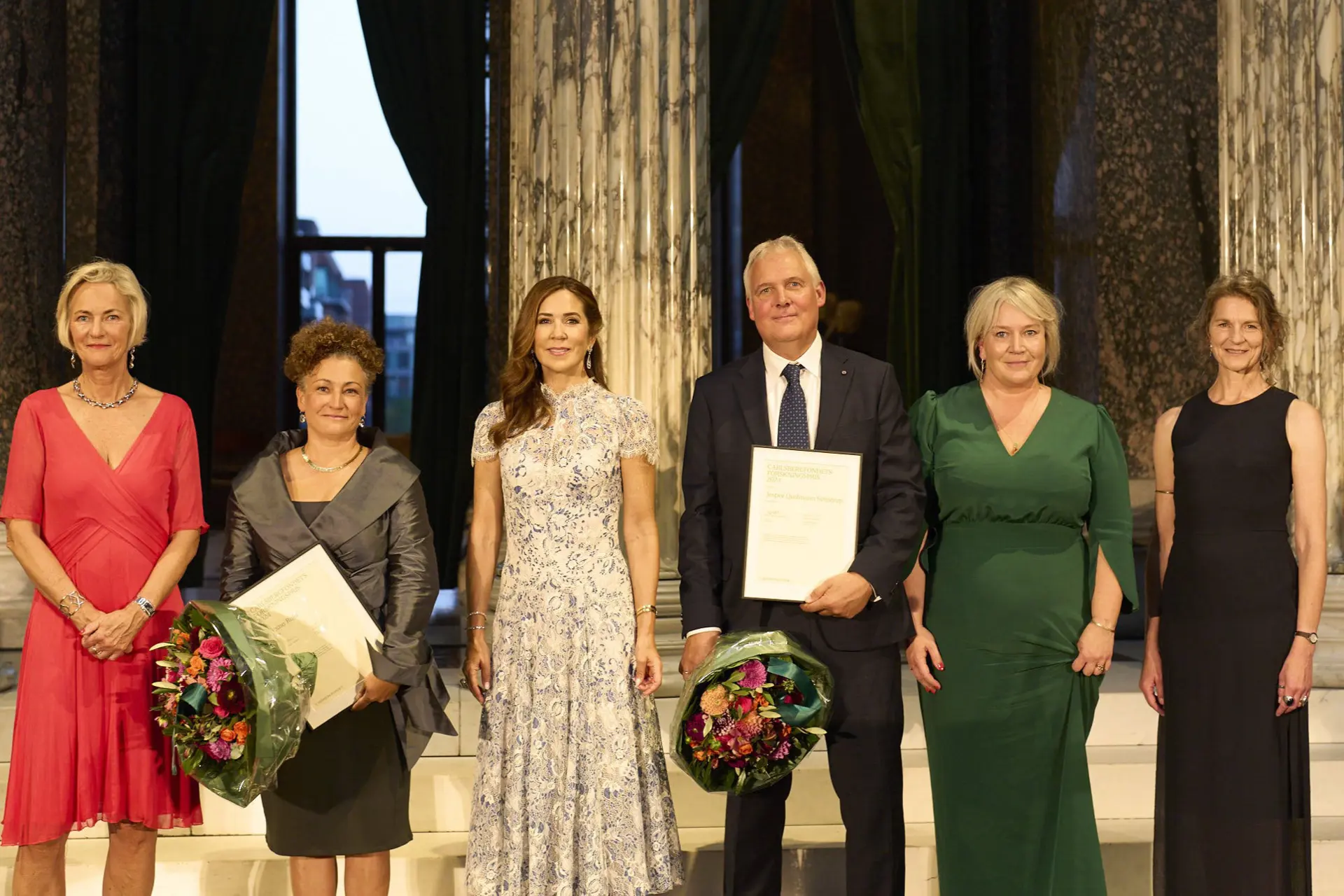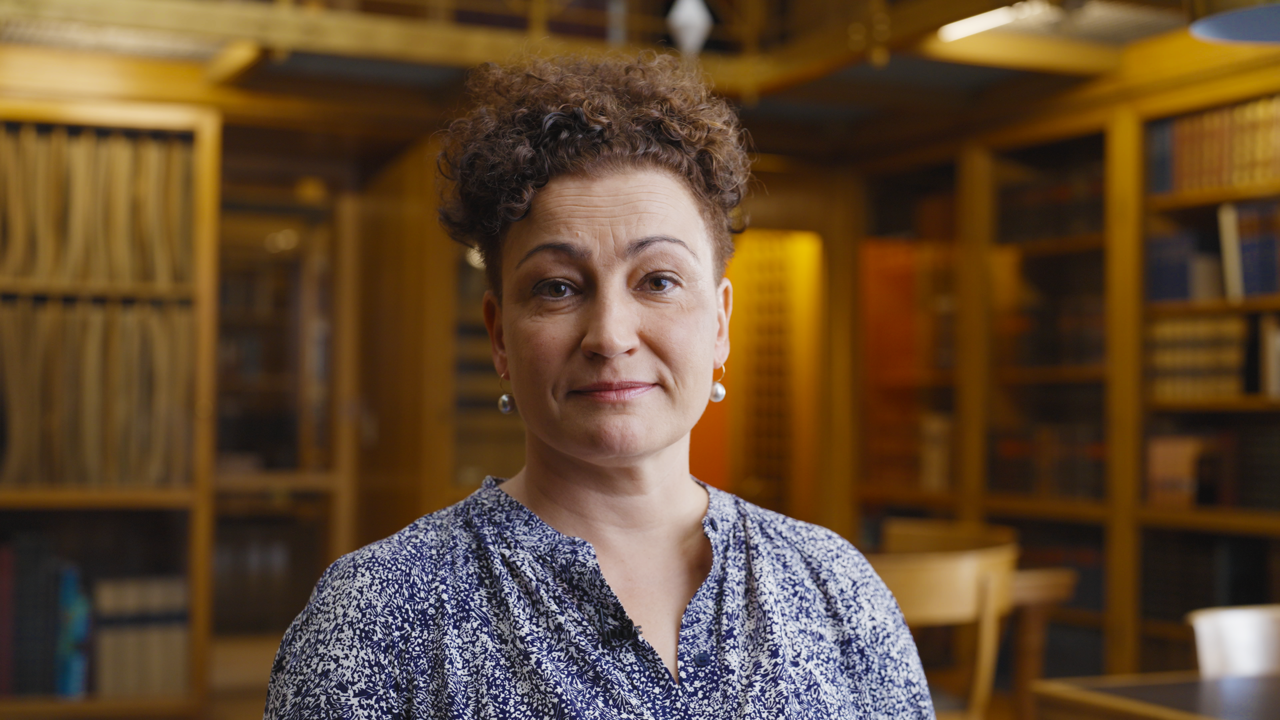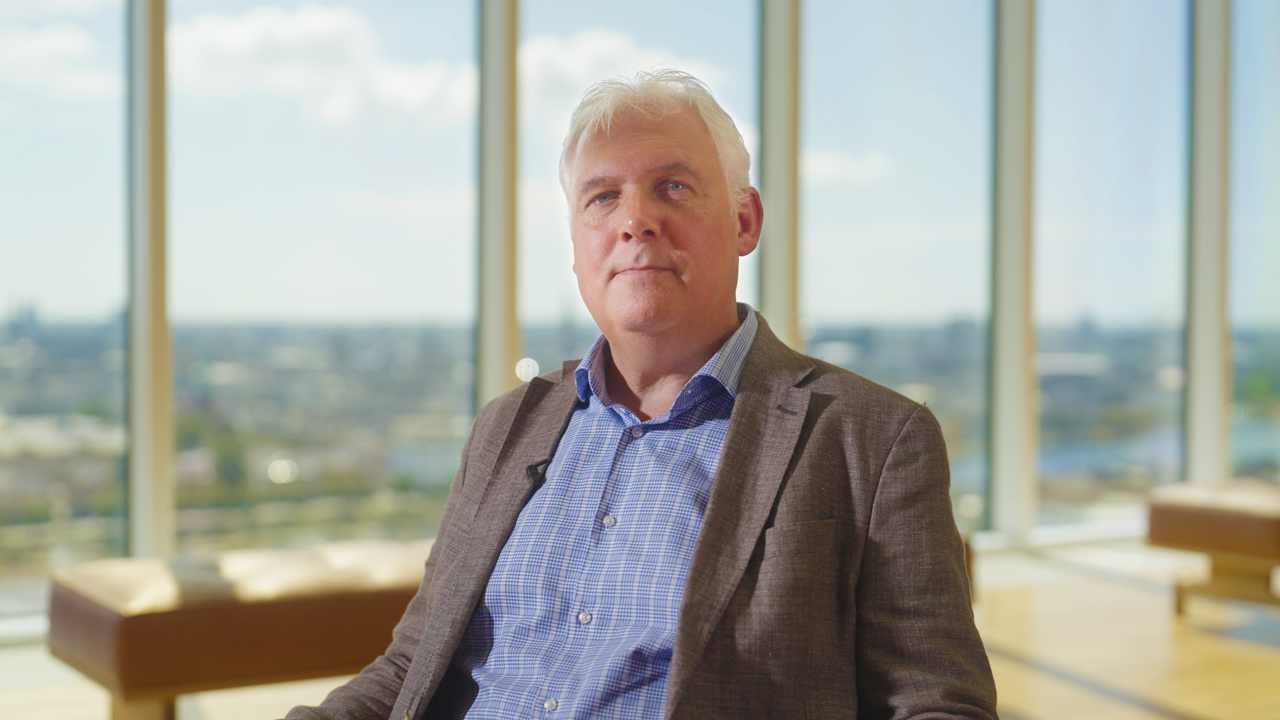
Rubina Raja and Jesper Q. Svejstrup awarded the Carlsberg Foundation Research Prizes 2024
Rubina Raja and Jesper Q. Svejstrup awarded the Carlsberg Foundation Research Prizes 2024
From left: Majken Schultz, Rubina Raja, H.M. The Queen, Jesper Qualmann Svejstrup, Christina Egelund and Mette Birkedal Bruun. Photo: Martin Juul
Published:
04.09.2024
Professor Rubina Raja and Professor Jesper Qualmann Svejstrup have been awarded the Carlsberg Foundation’s Research Prizes for 2024. The prizes were presented by Her Majesty The Queen of Denmark and Danish Minister for Education and Research Christina Egelund in a ceremony at the New Carlsberg Glyptotek.
Rubina Raja has been awarded the prize for her extensive archaeological studies spanning from urban communities and networks in the ancient world to iconography in the oasis city of Palmyra. Her research has not only led to new insights into key events in world history, but also paved the way for a new high-definition approach to excavations which has taken international archaeology onto important new paths.

Jesper Qualmann Svejstrup has been awarded the prize for his groundbreaking research into the molecular “machine” that transcribes our genes. Among many other things, he has discovered that this transcription is a risky process which can lead to serious pathological conditions if it does not function correctly, for example due to various stress factors. In so doing, he has made a fundamental contribution to our understanding of the interaction between molecular processes and the stability of the genome.

“On behalf of the entire Board of Directors, I take great pleasure in congratulating Rubina Raja and Jesper Qualmann Svejstrup on being awarded the Carlsberg Foundation Research Prizes 2024,” says Professor Majken Schultz, Chair of the Carlsberg Foundation. “Rubina Raja is behind crucial breakthroughs in our understanding of the dynamics between ancient cities in a broad geographical and cultural context, while Jesper Qualmann Svejstrup has delivered fundamental new insights into how our DNA is transcribed and repaired. I am delighted to honour two of Demark’s most talented scholars with these prizes. They have dedicated themselves to the service of science to the benefit of us all.”
Download press photos of the prize recipients
Foto: OLALA
Jesper Qualmann Svejstrup. Photo Martin Juul
0.28mb
Rubina Raja. Photo Martin Juul
0.6mb
Prize giving ceremony. Photo: Martin Juul
0.69mb
Rubina Raja. Photo Olala
10.05mb
Jesper Qualmann Svejstrup. Photo Olala
7.74mb
Pictures from the Carlsberg Foundation Research Prizes 2024. Photos: Martin Juul
H.M. The Queen presented this year’s prizes
The Carlsberg Foundation Research Prizes are awarded on the recommendation of an international Prize Committee. Each prize is worth DKK 2 million, of which DKK 1.5 million is earmarked for research activities and DKK 500,000 is a personal gift.
Her Majesty The Queen of Denmark and Danish Minister for Education and Research Christina Egelund presented this year’s prizes together with the Carlsberg Foundation’s Chair, Majken Schultz, and the Prize Committee’s Chair, Mette Birkedal Bruun.
About the Carlsberg Foundation Research Prizes
The objective of the Carlsberg Foundation Research Prizes is to acknowledge two active researchers in Denmark or abroad who have made crucial contributions to Danish basic research at a high international level. The prizes are intended to encourage further research and may be used for stays abroad, fieldwork, purchases of equipment or wages for scientific work.
The Carlsberg Foundation Research Prizes were instituted in 2011 to mark the bicentenary of the birth of the Foundation’s founder, J.C. Jacobsen.
Open nomination process
The Carlsberg Foundation Research Prizes 2024 were awarded on the recommendation of an international Prize Committee, which received nominations from the Danish research community following an open invitation in spring 2024. All academic employees at post-doctoral level or above at Danish universities and research institutions were able to submit a nomination.
The Prize Committee comprised Professor Mette Birkedal Bruun from the University of Copenhagen (Chair), Professor Gøsta Esping-Andersen from Universitat Pompeu Fabra in Barcelona, Professor Anja Groth from the University of Copenhagen, Professor Peter Landrock from the University of Cambridge and Professor Klaus Müller-Wille from Universität Zürich.
Newsletter
Are you a researcher and interested in news related to our calls and grants? Or do you want to keep up with news about the foundation’s activities? Then sign up for one of our newsletters here.



















